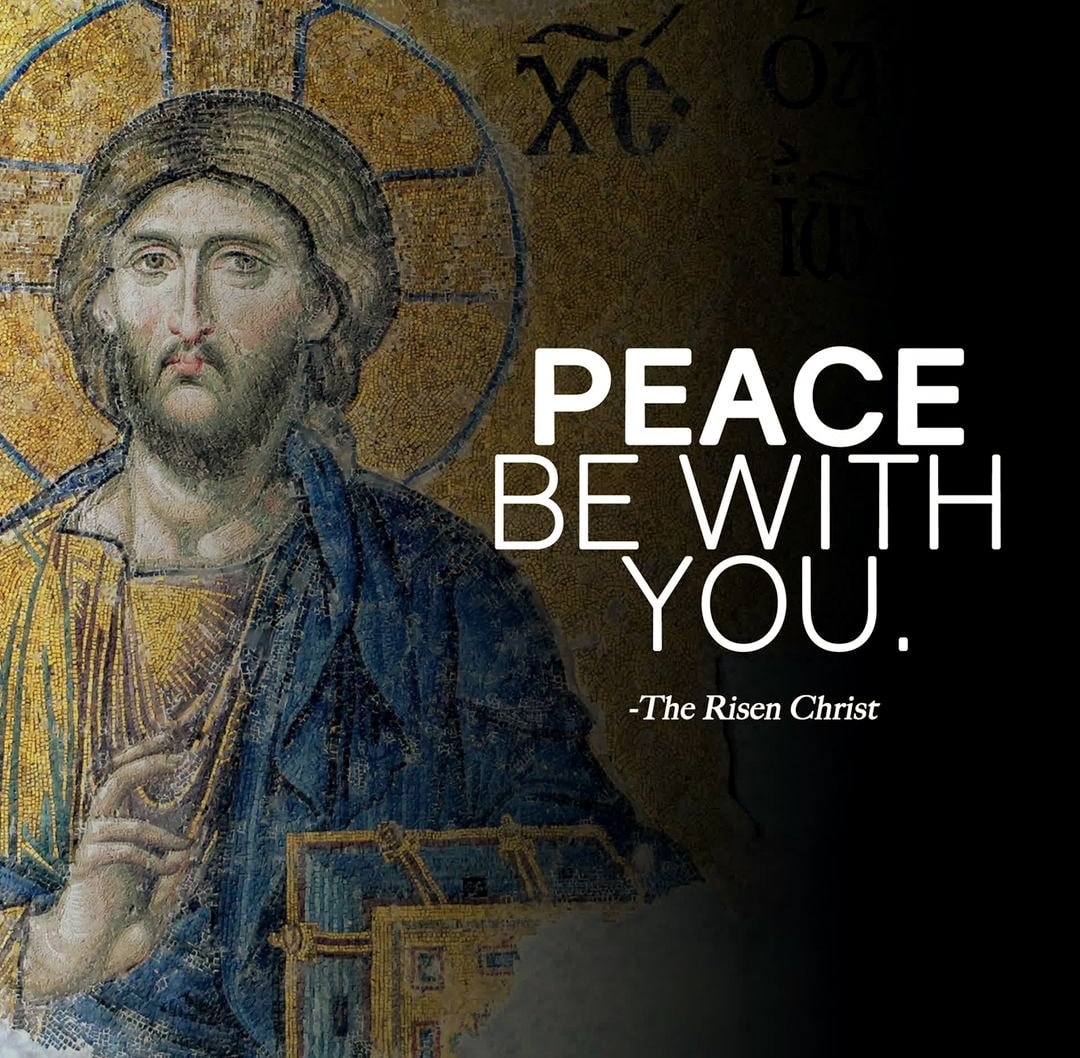
Jn.20:1-9
The gospel passage of this Easter morn invites us to reflect on the resurrection experience of Jesus from the perspective of three of his beloved disciples, namely Mary Magdalene, John, and Peter. We see that even when it was still dark, Mary went to the tomb of Jesus. Why did she visit the tomb of Jesus? Did she know Jesus rose from the dead? Though she might have heard Jesus speaking about his resurrection, we can be sure that she did not understand his words or did not expect it. She loved him so passionately that she came to weep at his tomb. However, things did not happen as she wished. The stone that was used to zeal his tomb was rolled away, and the remains of Jesus disappeared from the tomb. This incident broke her heart further. She runs to John and Peter to inform them of the sad news that Jesus’ body was taken away by someone. She comes back to the tomb with terrible grief and weeping. At that moment, the risen Lord blessed her with His presence. Thus, she becomes the first witness of the risen Lord and shares with the disciples that Jesus has risen from the dead.
Let us reflect on the Easter experience of John, who was the beloved disciple of the Lord. When he heard from Mary that Jesus’ body was found missing, he ran to the tomb faster than Peter and reached it first. Yet he did not go inside and wait for Peter. Why did he not go inside and verify Jesus’ remains? He was neither the old, arrogant, nor ambitious person who asked Jesus to destroy the Samaritan village that turned their back on Jesus and one who demanded a place on his left or right. Being a chosen witness of Jesus’ sacrificial love at the table of the Lord and at the altar of the cross, he did not want to be the greatest or the first, but wanted to remain as his beloved. Following Peter, John enters the tomb and sees that it is empty. The burial cloth, which was set aside, and the cloth used to cover his head were rolled up and kept. John knew for sure that his body was not stolen.
In the Near East culture, if the master was finished eating, he would rise from the table, wipe his fingers and mouth, crumple the napkin and keep it on the table. It is an indication to the servant that ‘I am finished.’ If the master got up from the table, folded the napkin and laid it beside his table, then the servant would not dare touch the table because the folded napkin meant, ‘I am coming back.’ John, who closely witnessed the table manners of Jesus, knew for sure that his body was not stolen. He was blessed with the spark of his resurrection. Without witnessing it, John becomes a paragon role model for all his future disciples who are called to believe in his resurrection. Thus, he does not leave the empty tomb in despair, but his empty life is filled with hope.
Let us look at this Easter experience through Peter’s eyes. Peter was more sorrowful than others because he had failed in his fidelity to the Master. He gave his word that he would be with him in any circumstance, but he denied him thrice. He could not forget the merciful eyes with which the master looked at him, and he wept bitterly. He reaches the tomb, verifies the empty tomb, witnesses the burial cloth, and the cloth used to cover Jesus’ head. It is true that Peter did not get the complete understanding of Jesus’ resurrection. He came to the empty tomb with a heart filled with deep sorrow and grief, but he went back from there comforted. He was convinced that his body had not been stolen because he could breathe the risen Jesus in the air.
Dear friends, today we commemorate the resurrection of Jesus, which happened two thousand years ago. Today we need to reflect on the question: ‘Did Jesus rise in our lives?’ Can we live our lives in this hope of our risen Lord? Even though we know all these facts, often we experience the block of stone that was kept at the entrance of Jesus’ tomb, which prevents us from experiencing the risen Lord in our personal life. This stone can be our lack of faith, financial struggles, addictions, work load, etc. Like Mary Magdalene, John, and Peter, we also need to search for Jesus in our lives. When we seek him, we experience the miracle of these stumbling blocks moving away and the empty tomb will lead us to experience the risen Lord. Thus, we would be able to fill our empty lives with the hope and joy of the risen Lord.